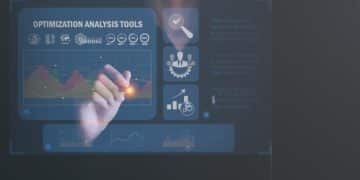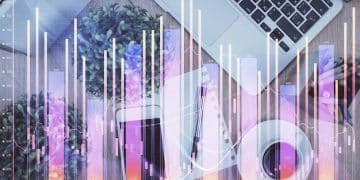Is the New: Innovative Trends in Startup Spotlights

Is the New explores the transformative and pioneering approaches reshaping various industries, focusing on how startups are driving these innovative changes.
In today’s rapidly evolving business landscape, the concept of Is the New signifies a constant state of innovation and adaptation. Startups, with their agile nature and disruptive ideas, are at the forefront of this movement, redefining industries and challenging traditional norms.
Decoding ‘Is the New’: A Paradigm Shift
The phrase “Is the New” encapsulates the essence of continuous improvement and adaptation. It signifies that what was once cutting-edge and conventional has been superseded by fresh, more efficient, and innovative approaches. This paradigm shift is vividly evident within the startup ecosystem.
Startups, unencumbered by legacy systems and traditional hierarchies, can swiftly embrace emerging technologies and unconventional strategies. This adaptability allows them to challenge established players and introduce novel solutions that cater to evolving market demands.
The Core of Innovation
At its core, “Is the New” embodies a spirit of relentless inquiry and experimentation. It is about questioning the status quo and seeking better, more innovative ways to address challenges and opportunities.
This concept encourages a culture of continuous learning and adaptation, fostering an environment where creativity flourishes, and groundbreaking ideas emerge.
Driving Forces Behind Change
Several factors contribute to the rise of “Is the New,” particularly within the startup world. These include technological advancements, changing consumer preferences, and a greater emphasis on sustainability and social responsibility.
- Technological Advancements: Rapid advancements in areas such as artificial intelligence, blockchain, and biotechnology have empowered startups to develop solutions that were previously unimaginable.
- Changing Consumer Preferences: Consumers are increasingly seeking personalized, convenient, and sustainable products and services, driving startups to innovate and cater to these evolving needs.
- Emphasis on Sustainability and Social Responsibility: Startups focused on creating environmentally friendly and socially responsible solutions are gaining traction and reshaping industries.
In conclusion, “Is the New” represents a dynamic and transformative shift in how businesses operate and innovate. Startups are leading this charge, driven by a combination of technological advancements, evolving consumer preferences, and a commitment to sustainability and social responsibility.

Startups: The Vanguard of Innovation
Startups, with their inherent agility and innovative spirit, are uniquely positioned to drive the “Is the New” movement. Unlike established corporations bound by legacy systems and bureaucratic inertia, startups can pivot quickly and embrace cutting-edge technologies.
This adaptability allows them to experiment with unconventional business models, disrupt traditional industries, and introduce groundbreaking solutions to the market.
Agility and Adaptability
The ability to adapt quickly to changing market conditions and emerging technologies is a critical advantage for startups. This agility allows them to seize opportunities and navigate challenges more effectively than their larger, more established counterparts.
Startups can readily adopt new technologies, prototype innovative solutions, and iterate based on real-time feedback, enabling them to stay ahead of the curve.
Disruptive Business Models
Startups are challenging traditional business models by introducing innovative approaches to product development, marketing, and customer engagement. These disruptive models often leverage digital technologies and focus on creating unique and personalized experiences for customers.
- Subscription-Based Services: Offering products and services through subscription models provides recurring revenue streams and fosters customer loyalty.
- Direct-to-Consumer (DTC) Brands: Bypassing traditional retail channels allows startups to build direct relationships with customers and control their brand experience.
- The Sharing Economy: Platforms that facilitate the sharing of resources and services, such as Airbnb and Uber, have disrupted traditional industries and created new economic opportunities.
In essence, startups embody the true spirit of “Is the New” by constantly pushing boundaries, challenging conventions, and introducing groundbreaking solutions that redefine industries and improve lives.
Technology as the Catalyst for Change
Technology plays a pivotal role in driving the “Is the New” movement, providing startups with the tools and capabilities to innovate and disrupt industries. Emerging technologies such as artificial intelligence (AI), blockchain, and the Internet of Things (IoT) are transforming how businesses operate and interact with customers.
Startups are leveraging these technologies to develop novel solutions, automate processes, and create personalized experiences that cater to evolving customer demands.
Artificial Intelligence (AI)
AI is revolutionizing various industries, from healthcare and finance to retail and manufacturing. Startups are using AI to develop intelligent systems that can analyze data, automate tasks, and provide personalized recommendations.
AI-powered solutions are optimizing processes, improving efficiency, and enhancing decision-making across various domains.
Blockchain Technology
Blockchain, a decentralized and transparent ledger technology, is transforming industries by enabling secure and transparent transactions, streamlining supply chains, and enhancing data integrity.
Startups are leveraging blockchain to develop innovative solutions for financial services, healthcare, and supply chain management.
Internet of Things (IoT)
The IoT, which involves connecting physical devices to the internet, is enabling startups to collect vast amounts of data and develop intelligent systems that can monitor, analyze, and optimize processes in real-time.
- Smart Homes: IoT-enabled devices are automating home functions, improving energy efficiency, and enhancing security.
- Connected Cars: IoT technology is transforming the automotive industry by enabling autonomous driving, predictive maintenance, and enhanced safety features.
- Industrial IoT: IoT sensors and systems are optimizing manufacturing processes, improving equipment performance, and reducing downtime.
In summary, technology serves as a powerful catalyst for the “Is the New” movement, empowering startups to develop innovative solutions, disrupt traditional industries, and create a more efficient and connected world.
Customer-Centric Innovation
In today’s competitive landscape, customer-centricity is paramount. Startups that prioritize understanding and meeting customer needs are more likely to succeed in the “Is the New” era. This involves gathering customer feedback, personalizing experiences, and building strong relationships.
By focusing on customer satisfaction and loyalty, startups can differentiate themselves from competitors and create a sustainable competitive advantage.
Gathering Customer Feedback
Actively soliciting and analyzing customer feedback is essential for understanding customer needs and identifying areas for improvement. Startups can use various channels, such as surveys, focus groups, and social media, to gather valuable insights.
By listening to customers and incorporating their feedback into product development and service delivery, startups can create solutions that truly resonate with their target audience.
Personalizing Experiences
Customers increasingly expect personalized experiences that cater to their individual preferences and needs. Startups can leverage data analytics and AI to create personalized recommendations, tailor marketing messages, and provide customized support.
By delivering personalized experiences, startups can enhance customer satisfaction, build loyalty, and drive revenue growth.
Building Strong Relationships
Building strong relationships with customers is crucial for long-term success. Startups can foster customer loyalty by providing exceptional service, engaging in meaningful conversations, and creating a sense of community.

- Loyalty Programs: Rewarding repeat customers with exclusive benefits and discounts encourages continued engagement and strengthens relationships.
- Community Building: Creating online and offline communities where customers can connect, share experiences, and provide feedback fosters a sense of belonging and loyalty.
- Exceptional Customer Service: Providing prompt, helpful, and personalized customer service is essential for building trust and fostering positive relationships.
In conclusion, customer-centric innovation is a critical driver of success in the “Is the New” era. Startups that prioritize understanding and meeting customer needs are more likely to thrive in today’s competitive landscape.
Sustainability and Social Impact
Increasingly, businesses are recognizing the importance of sustainability and social impact. Startups that prioritize these factors are not only contributing to a better world but are also attracting customers, investors, and employees who share their values. This focus aligns perfectly with the ethos of “Is the New.”
By integrating sustainability and social impact into their business models, startups can create a positive ripple effect and inspire others to follow suit.
Environmental Sustainability
Startups are developing innovative solutions to address environmental challenges such as climate change, pollution, and resource depletion. These solutions range from renewable energy technologies to sustainable packaging and waste reduction strategies.
By embracing environmental sustainability, startups can reduce their carbon footprint, conserve resources, and contribute to a healthier planet.
Social Impact
Startups are also focusing on addressing social issues such as poverty, inequality, and access to education and healthcare. These efforts include developing affordable technologies, creating job opportunities in underserved communities, and promoting diversity and inclusion.
By prioritizing social impact, startups can improve lives, empower communities, and create a more equitable society.
Measuring Impact
Measuring and reporting on sustainability and social impact is essential for demonstrating accountability and building trust with stakeholders. Startups can use various metrics and frameworks to track their progress and communicate their impact effectively.
Transparency and accountability are crucial for building credibility and attracting investors and customers who value sustainability and social responsibility.
Ultimately, startups that embrace sustainability and social impact are not only creating value for themselves but also contributing to a more sustainable and equitable future, embodying the very essence of “Is the New.”
Challenges and Opportunities
While the “Is the New” movement presents numerous opportunities for startups, it also entails significant challenges. Navigating these challenges effectively is crucial for startups to achieve sustainable growth and success.
By understanding and addressing these challenges, startups can mitigate risks and capitalize on emerging opportunities.
Funding and Resources
Securing funding and resources is a persistent challenge for many startups. Access to capital, talent, and mentorship is essential for startups to scale their operations and compete effectively.
Startups need to develop compelling business plans, build strong networks, and explore innovative funding models to attract investors and secure the resources they need to thrive.
Competition
The startup landscape is becoming increasingly competitive, with new ventures emerging constantly. Startups need to differentiate themselves from competitors by developing unique value propositions, building strong brands, and delivering exceptional customer experiences.
Continuous innovation and adaptation are essential for startups to stay ahead of the curve and maintain a competitive edge.
Regulatory Hurdles
Navigating regulatory hurdles and compliance requirements can be complex and time-consuming for startups. Understanding and complying with relevant laws and regulations is crucial for avoiding legal issues and ensuring sustainable growth.
Startups should seek legal advice and establish robust compliance programs to mitigate risks and ensure they operate within the bounds of the law.
Despite these challenges, the “Is the New” movement offers tremendous opportunities for startups to innovate, disrupt industries, and create a better future. By addressing these challenges head-on and embracing a culture of continuous learning and adaptation, startups can achieve remarkable success.
| Key Point | Brief Description |
|---|---|
| 💡 Innovation | Constant evolution and fresh approaches redefining industries. |
| 🚀 Startups | Agile entities at the forefront of disruptive changes and novel solutions. |
| 🌱 Sustainability | Eco-friendly and socially responsible solutions gaining traction and reshaping sectors. |
| 🤝 Customer-Centricity | Prioritizing customer needs for market differentiation and loyalty. |
FAQ
▼
‘Is the New’ signifies the constant evolution and replacement of outdated practices with innovative, more effective approaches, especially driven by startups.
▼
Startups, with their agility and disruptive ideas, challenge traditional industries, introducing groundbreaking solutions that cater to rapidly changing market demands.
▼
Technology, including AI, blockchain, and IoT, empowers startups to innovate and disrupt industries by developing novel, automated, and personalized solutions.
▼
Customer-centric innovation helps startups to differentiate themselves by meeting specific customer needs, enhancing satisfaction, and building strong, lasting relationships.
▼
Startups prioritizing sustainability and social impact not only contribute to a better world but also attract value-driven customers, investors, and employees, thus setting new standards.
Conclusion
In conclusion, “Is the New” represents a transformative movement led by agile and innovative startups. By leveraging technology, prioritizing customer needs, and embracing sustainability, these ventures are redefining industries and creating a future where continuous improvement and positive impact are the norm.





